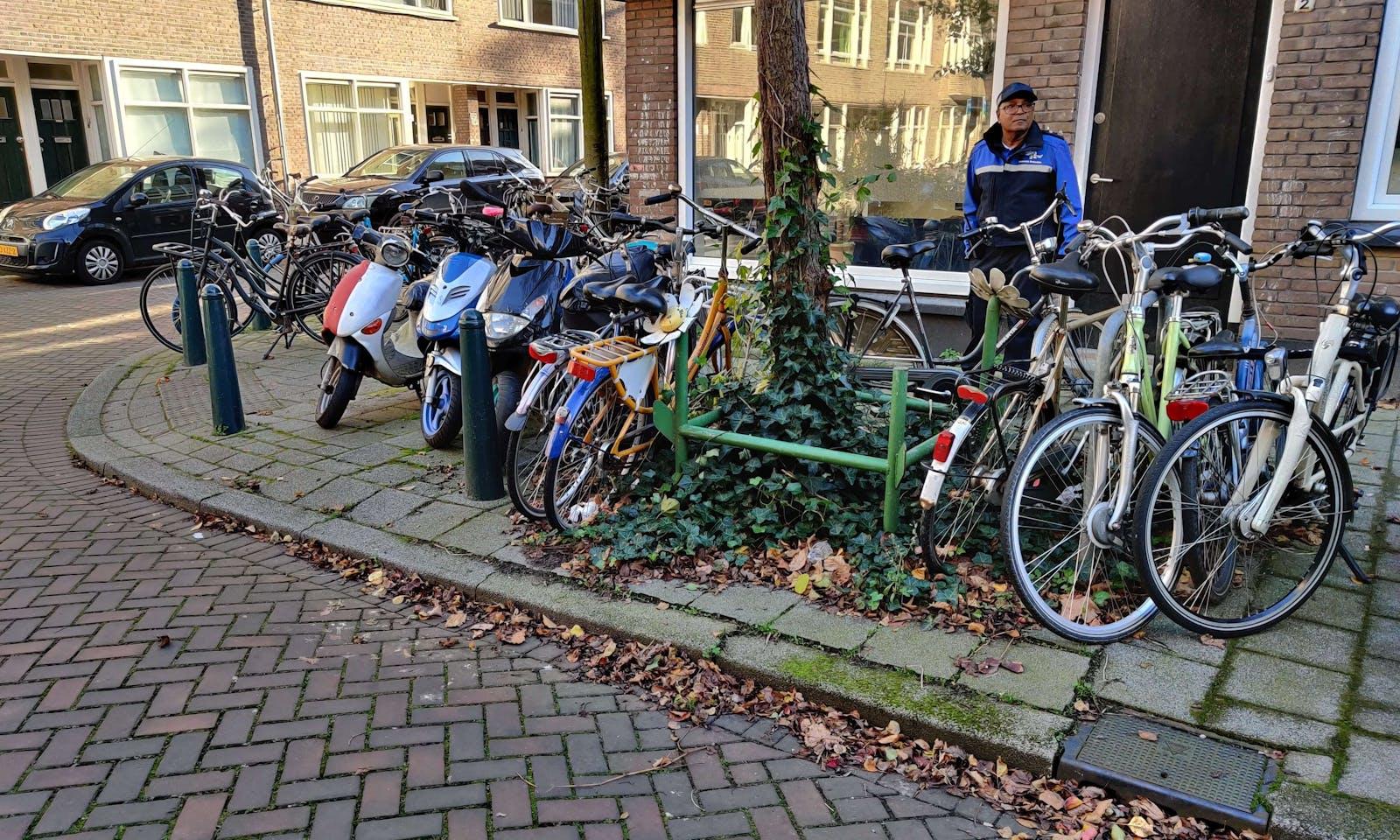Bicycle parking in the city
Reducing bicycle wrecks and faulty parking
Challenge
The number and use of bicycles continues to increase in Dutch cities (luckily so). In densely populated areas bike parking becomes an issue. Space can be created by removing wrecks and abandoned bikes. And by reducing faulty parking. But how can you do this without incurring high costs for enforcement?
Reducing bicycle wrecks and faulty parking
Approach
To answer this question, we had to dive deep into the cause of the occurrence of wrecks and faulty parking. We focussed on 2 areas where these problems mostly prevail:
1/ Nuisance of incorrect and annoying parking near Rotterdam CS.
2/ Nuisance of bicycle wrecks and orphan bicycles in the Rotterdam district Bergpolder.
At CS and Bergpolder we spoke with visitors, inhabitants, enforcers, pioneers and experts in the field of bicycle mobility. The findings were set out in a journey and further enriched in an online co-creation where we focused on positive prevention in advance instead of enforcement afterwards.
Rotterdam Central Station
At CS we are committed to preventing wrong-way parking by separating the flow of 1st and 2nd bicycles.
The 2nd bicycle is the bicycle that people use as a commuter, i.e. from CS to work, school or other destination.
Research shows that a second bicycle is parked 4 times longer and takes up 45% of the space. Moreover, they take up the best spaces closest to the rail tracks. As a result the parking facility is quickly filled to capacity. At peak times, inbound and outbound commuters meet, causing further congestion. This (cluttered) congestion then contributes to wrongful parking outside the parking lot.
We advised the municipality to introduce short- and long-term parking (including a 24-hour parking facility), accompanied by a package of communication and behavioral campaigns to guide cyclists.
Bergpolder solutions
For Bergpolder we recommend a phased approach, mainly focused on data and positive preventive measures.
Using data that shows heatmaps with abandoned bikes and wrecks.
Subsequently, we suggested a set of positive measures to prevent people from leaving the bike behind like pro-active bike repair; collecting bikes by a local social enterprise and by returning a bike when buying a new one.
In addition, we suggested to reduce bicycle ownership (not usage!), by creating a neighborhood shared bike.
A stronger local economy
We are working on a new local economy. We develop new concepts and businesses that challenge the old economy. By competing on other values than just financial.
- project
Parklets as a transition tool
Since years Rotterdam is undergoing a rapid transition towards a human and green place to be. How? B...
